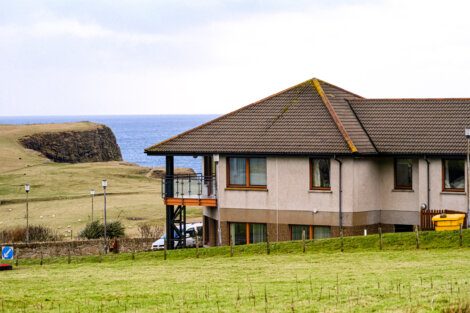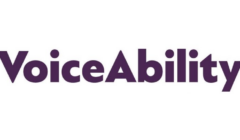Who stands for the Council? / Council and NHS aim to care for people at home wherever possible
Implementing national care service locally will be among key challenges
The “Who stands for the council? It’s people like you” campaign aims to encourage more candidates to come forward for May’s elections to Shetland Islands Council. In the fourth part of a series of features looking at some of the main issues the local authority is working on, through its corporate plan Our Ambition 2021-26, Chair of the Integration Joint Board Emma Macdonald speaks about how the SIC and NHS are working together effectively to shape the delivery of care services to the community.
WHILE historically an SIC councillor would have had relatively little say when it comes to healthcare, changes in local government in recent years have transformed that.
The creation of the Integration Joint Board (IJB) in 2015 brought together members of Shetland Islands Council and NHS Shetland. It is a joint forum designed to improve the policy-making and planning that goes into providing adult health and social care across the two organisations.
It means those elected to the council in May will have the opportunity to shape how key care services are provided in their own communities and real input into how Scotland’s new national care service is implemented in the Shetland context.
This spring’s elections come at a pivotal time as communities look to rebuild in the wake of two years of Covid-19 disruption. It has prompted reflection on how best to provide social care and tackle the inevitable knock-on effects that isolation has had on many individuals’ mental health wellbeing.
Current SIC deputy leader and IJB Chair Emma MacDonald says it is vital that people who live and work in communities are able to have a say in how services are delivered to those that need them most.
“As an elected member you live in the community and are part of it, you want services to be good because you use them, your family and friends use them. It’s important to have people at the table making decisions that understand the impacts.”
People do not mind whether the care they receive is delivered by the council or by the NHS, as long as they receive a high quality service, Macdonald points out.
Implementing the new national care service will undoubtedly be the top item in the in-tray for whoever takes the helm of the IJB next term. Many locally continue to harbour reservations – with the big fear, she says, that Shetland will be “made to lower our standards to make them the same standards as the rest of Scotland”.
Many care services are more costly to provide in remote, rural parts of the country. Councillors and health board members alike say it is essential to maintain “proper funding levels to sustain those services” in the islands.
“The uniqueness of island provision and systems is not always recognised across a national framework,” Macdonald says. “They have committed to make island impact assessments, and we really need to make sure our voice is heard.”
The experience of the Covid-19 pandemic has focused minds, with many people assessing whether they “want their relatives to be in a residential setting where they potentially can’t visit them”.
Ensuring more folk can be cared for at home, whether young adults or the elderly, is beneficial to both the community and service providers.
There will always be people with “severe complex needs” whose requirements cannot be fulfilled in Shetland, but where that is the case the aim is to find interim placements on the mainland and to prepare to bring individuals back to their community to continue receiving care as swiftly as possible.
Macdonald says: “More people are choosing to remain at home and receive care in this way and we need to ensure we can fulfil this demand. Managing this shift in the balance of care is challenging but is the right thing to do to allow for a more person centred approach to care.”
Vaccine rollout highlights importance of ‘localised delivery’ of national policy
One of Shetland’s advantages is having a council area that matches directly with the health board area, something that is not the case for every mainland authority.
As an indication of the overlap that now exists between the two organisations, there is a joint community health and social care director’s post accountable to both the NHS and SIC.
The Covid-19 vaccine rollout was a good example of the two organisations working together and exploiting the latitude they have to shape delivery of national guidance and policy.
“It was driven nationally but NHS Shetland and the SIC localised the delivery of it,” Macdonald explains. “As a community we got through the vaccinations a lot quicker than most other areas because we worked right across the health board and the council to bring a programme focused around the geography and needs of the people of Shetland.”
The community is now trying to pick up the pieces following nearly two years of Covid-19 restrictions that have inevitably taken a toll on many people’s mental health.
Macdonald says the IJB is looking at ways for not only the SIC and NHS, but also the third sector and community-led projects, to focus on improving the mental health and wellbeing of everyone in the islands through prevention and early intervention.
She says that encompasses organisations such as Mind Your Head and community support hubs as well as things like sports clubs, book groups and café meet-ups. All can make a contribution to delivering a “holistic approach to keeping people mentally well”.
“Focusing on early intervention and helping people live better is far better than needing access to services in the first place,” Macdonald adds.
Interested in standing to be a councillor this May? Find out more via the elections section on the SIC’s website.
Become a member of Shetland News
Shetland News is asking its readers to consider paying for membership to get additional perks:
- Removal of third-party ads;
- Bookmark posts to read later;
- Exclusive curated weekly newsletter;
- Hide membership messages;
- Comments open for discussion.
If you appreciate what we do and feel strongly about impartial local journalism, then please become a member of Shetland News by either making a single payment, or setting up a monthly, quarterly or yearly subscription.




























